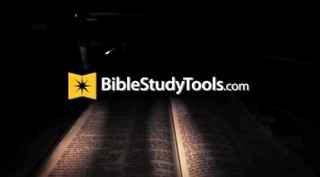
- Recent Translations
- All Translations
Videos for Genesis 43:8

Genesis 43:8 Meaning and Commentary
And Judah said unto Israel his father, send the lad with me,
and we will arise and go
Directly to Egypt for corn; Judah calls Benjamin a lad, because the youngest brother, and tenderly brought up by his father, who had an affectionate fondness for him as if he had been a child; otherwise he must be thirty two years of age, for he was seven years younger than Joseph, who was now thirty nine years of age; yea, Benjamin must have children of his own, who went with him and his father into Egypt, ( Genesis 46:21 ) ; for the computation of Benjamin's age, see ( Genesis 30:22 ) ( 31:41 ) ( 35:18 ) ( 37:2 ) ( Genesis 41:40 Genesis 41:53 Genesis 41:54 ) ( 45:6 ) ; that we may live, and not die, both we, and thou, [and] also our
little ones;
he argues, that if they with Benjamin went down to Egypt for corn, there was a possibility, yea, a probability that they would all live, even Benjamin also; but if not, they must all in course die, and Benjamin likewise; and therefore it was most prudent and advisable, for the sake of all their lives, of them and theirs, and for the sake of Benjamin among the rest, for whom Jacob was so particularly concerned, to let him go with them to Egypt for corn, since he must die if they did not go, and he could but die if he did go; and there was great likelihood, if not a certainty, he would not; at least Judah was confident he would not, as appears by what follows.